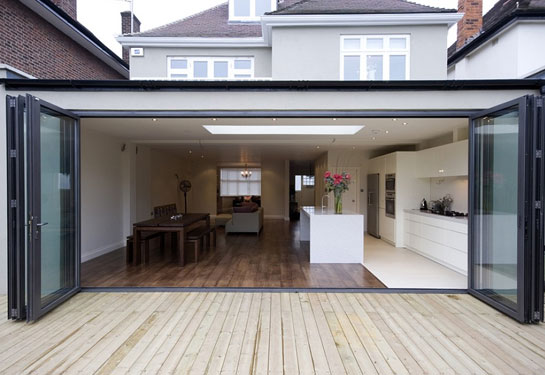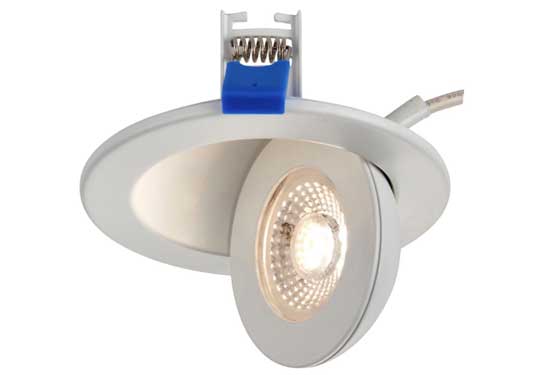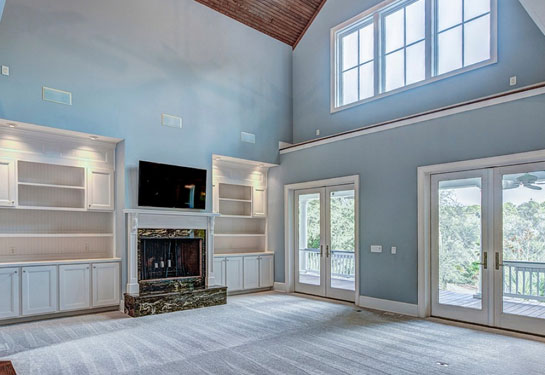Finding The Best Lighting For Your Extension

The last blast of winter may be hitting us with the now almost traditional ‘beast from the east’, but soon the longer, warmer days of spring will be with us and it will be a lot easier to carry out major works on your home.
While the prospective absence of severe weather in the coming months will make constructing an extension easier, however, now is still the time to put some more planning and thought into its design, layout, décor and interior lighting design.
The last of these issues will have a range of elements to consider. Will the extension be a light trap designed to be capture lots of natural light in summer and correspondingly a place of escape from gloom in winter? Or will it have lots of darker nooks and crannies and corners that you can either brighten or allow to remain in atmospheric shadow?
A key factor shaping your lighting needs will be the location of your extension in relation to the sun. If it faces south, for example, it will get the mid-day sun all year, while a more northerly orientation will mean the sun is only seen on summer evenings.
Your extension may even have a purpose that requires particularly good lighting, such as playing indoor sport or board games. In such an instance, the need to let natural light in during the day may be less.
If your extension is to your kitchen, natural light will be particularly important. After all, what could be better when you come down for breakfast than to enjoy the rays of the morning sun streaming in? Large windows will help, but skylights can bring in three times as much light.
The Loverenovate website suggests considering roof lanterns to provide wonderful illumination by night to complement what you would get by day. This form of lighting works perfectly with higher ceilings, so it is ideal for a kitchen or any room designed to catch the natural light by day and still be bright by night.
Should your extension be for leisure or work purposes, the chances are you will often be using it after dark. You might also want a design that does not allow too much bright light in; after all, you don’t want to be dazzled when sitting at a desk.
This means you may want to consider not just the fixed lights but also table lamps to provide extra light in otherwise dark corners. Because these are mobile, they offer a more flexible option.
Basements can be a challenge to keep light, because in some cases they will receive no natural light at all. Others will be more like a lower ground floor - this being a common feature of properties in cities like London where space is often at a premium and needs to be maximised.
Good architectural design can help bring as much natural light in to a basement extension as possible, with light tunnels and reflective mirrors among the methods of maximising this.
Once the sun goes down, however, it is important to have lighting that illuminates every corner, which means the location and type of lights should be tailored to the dimensions of the room.
Speak to us today and see how we can help you with your extension project’s lighting.









